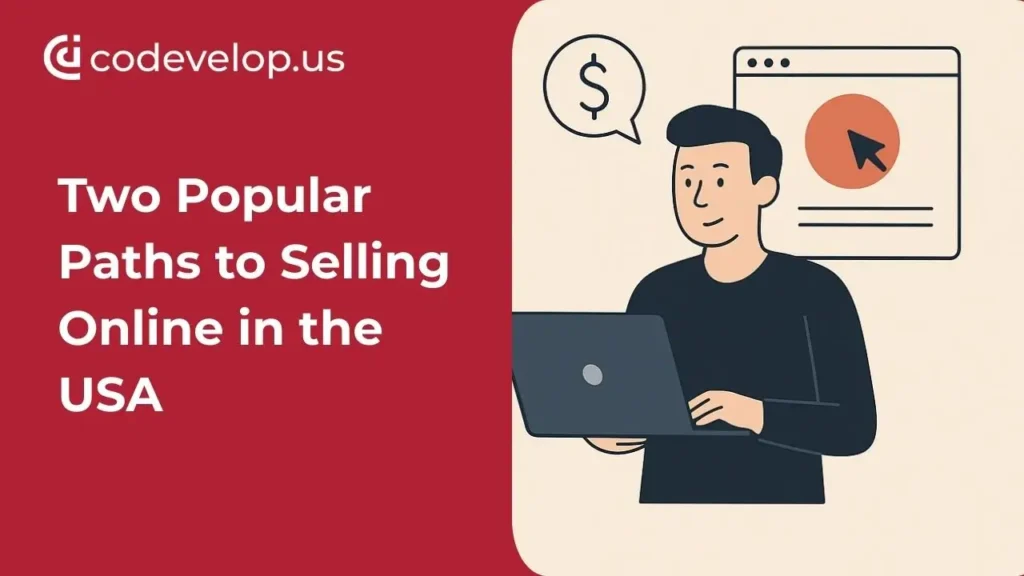If you’ve ever dipped your toes into online business, you’ve probably heard these two buzzwords tossed around: direct sales and affiliate marketing. They sound similar, but they run on very different engines. In the U.S., both are massive industries. Direct sales have roots in companies like Mary Kay and Amway, where neighbors sell to neighbors. Affiliate marketing is the digital cousin—think bloggers, YouTubers, or influencers who earn a commission when you click “buy” on a product link.
The question is, which one makes sense for you? Let’s dig into both models without the hype, just real talk.
1. What is Direct Sales? (And How It Works in Practice)
Direct sales is old-school but still kicking strong. It’s when a product goes straight from seller to customer, no middleman in between. In the U.S., it often looks like a local rep hosting parties, running demos, or selling via personal networks. Avon and Tupperware became household names this way.
But here’s the modern twist: direct sales is no longer just door-to-door. With social media, many reps now host live Facebook shows, Instagram pop-ups, and even TikTok product demos. Instead of knocking on doors, they’re sliding into feeds. The charm of direct sales? Personal relationships. Buyers often feel they’re supporting a friend rather than a faceless brand.
2. What is Affiliate Marketing? (The Middleman Advantage)
Affiliate marketing takes the opposite approach: you don’t own the product, you promote it. When someone buys through your link, you get a cut. The big appeal? You never touch inventory, shipping, or customer service. That’s why affiliate marketing blew up in the U.S. with platforms like Amazon Associates and ShareASale.
A blogger writing “Top 10 Coffee Makers” or a TikTok creator reviewing beauty products? That’s affiliate marketing in action. It’s flexible, scalable, and a low-barrier entry into online income streams.
3. Key Differences Between Direct Sales and Affiliate Marketing
Direct sales thrives on relationships. Affiliate marketing thrives on content. In direct sales, you’re often pitching to people you know. In affiliate marketing, you’re creating digital touchpoints—reviews, videos, posts—that attract strangers.
Direct sales usually require joining a company and sometimes buying starter kits. Affiliate marketing requires building an audience and trust. Both demand hustle, just in very different ways.
4. Earning Potential: Who Makes More in the U.S. Market?
Here’s the honest answer: both can make money, but neither is “easy money.” Direct sales can bring in fast cash if you have a strong personal network. Affiliate marketing takes longer—it’s often months before you see commissions—but once your content ranks, it can bring in passive income.
According to the Direct Selling Association (DSA, USA), direct sales generated over $40 billion in the U.S. in 2022. Meanwhile, Statista reported that affiliate marketing spend in the U.S. surpassed $8 billion the same year. That tells you both are huge, but affiliate marketing is scaling faster thanks to digital-first consumer behavior.
5. Pros and Cons of Direct Sales for U.S. Businesses and Individuals
Pros: Quick entry, personal connection, established company backing.
Cons: Reliance on personal networks, sometimes aggressive sales tactics, and limited scalability unless you recruit teams.
A lot of Americans still enjoy buying from someone they trust—direct sales thrives on that. But it’s not for everyone, especially introverts or people who dislike sales pressure.
6. Pros and Cons of Affiliate Marketing for U.S. Creators and Brands
Pros: Low upfront costs, no inventory, scalable income, flexible niches.
Cons: Requires patience, constant content creation, and heavy competition.
Affiliate marketing rewards consistency. If you love creating blogs, videos, or guides, it can feel natural. But if you want instant results? It might frustrate you.
7. Real-Life Examples: From Avon to Amazon Associates
Direct sales: Mary Kay consultants still drive those famous pink Cadillacs when they hit sales milestones. That’s motivation and branding at its finest.
Affiliate marketing: Tech bloggers like Wirecutter (acquired by The New York Times) have built entire empires on affiliate reviews. One drives sales through personal trust, the other through digital authority.
8. Which Model Fits You Better? (Questions to Ask Before Choosing)
- Do you enjoy personal networking, or do you prefer content creation?
- Do you want quick cash, or are you okay waiting for long-term passive income?
- Do you like promoting one brand or exploring multiple niches?
Your honest answers will point you toward the model that suits your personality.
9. Conclusion: Finding the Right Balance in Today’s Digital Economy
Here’s the kicker: you don’t always have to pick one. Some people in the U.S. run direct sales on the side while building affiliate content in parallel. The digital economy is flexible enough for both.
Direct sales is about heart and personal touch. Affiliate marketing is about reach and digital leverage. The right path depends less on the industry and more on you.
Ready to grow your online business with the right digital strategy? 🚀 Contact Codevelop today and let’s build your path to success!


